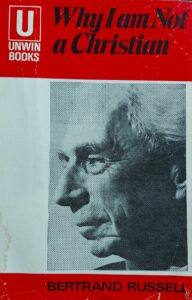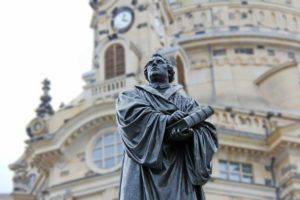Letter to a Dear Friend
To my dear friend friend Francois,
You asked me a very straightforward and sincere question about my Christian faith. May I paraphrase it as follows: “Christo, you are a devout Christian, trying to convince others to believe like you do. So, what is going to happen to all those people who do not believe? Will they enter God’s kingdom? Does your belief-system have the right to condemn all others who don’t believe, to eternal damnation? Should every person not be free to believe what they want and have their own weltanschauung?”
Indeed, very good questions. I would like to answer them as briefly and as best as I could. These are questions of eternal importance.
To the Apostolic testimony!
The first thing I would like to say is that we need to separate the testimony of Jesus and his apostles from everything else. I will not try to answer you by quoting church dogma, or by echoing pet slogans of evangelical Christianity. I will endeavour to take us back to the time of Jesus and the earliest Christians, and from there seek to answer your sincere questions.
Recently, I begun reading through St. Matthew’s Gospel again, and yet again it left me in awe and wonder, especially against the backdrop of what we are hearing and seeing around us in the twenty-first century. So, I want to ask you my dear friend, put yourself in the sandals of those bystanders who first saw and heard Jesus of Nazareth in Galilee, or place yourself in the humble building of those first hearers of the gospel, when someone came to read to them St. Matthew’s scroll.
Imagine hearing from the Nazarene’s lips such teaching as has never been equalled on earth. Imagine witnessing a life that is not only “above reproach” but entirely without any sin, of a person—not self-righteous and proud, but kind, humble, generous and just. Of one who opened the eyes of a poor blind beggar you personally knew, or who caused a paralyzed cousin of yours to walk for the first time ever, or who, with a few words, delivered a badly messed-up maniac, who used to live among the tombs where he tried to commit suicide many times. Imagine even seeing this last-mentioned fellow, now sitting at the feet of Jesus, perfectly normal and deeply grateful. Or imagine seeing with your own eyes poor lepers instantly healed by his touch, or all manner of sinners on the fringes of society, ecstatic for receiving pardon from God for whatever they may have committed, and walking away in awe. What would you think? Or imagine yourself sitting among those who heard Peter’s summary of Jesus’ life in the port city of Caesarea (in Acts 10), somewhere around AD 35 for that matter. Would it not have been wonderful? Would you not have believed that this man was Something else, Someone to entrust your entire life to?
And what if all of the above was clothed in the teaching of such heavenly wonder and divine authority which no living mortal has ever heard, and if this Galilean teacher (call him what you wish) claimed to be the fulfilment of all that was written before in the Torah and the Prophets, would that not have made you pause and think? Even more so, when he then puts you on the spot by asking: “So, who do you say am I?” If this unassuming individual, who though owning no shekel made others rich; though having no academic degree exposed the folly of all the learned; who though having no slaves, was called “master”; who though never having learned medicine, made others well; who though having had no earthly power, caused Pilate and many after him to fear; who though carrying no keys, opened the worst of prisons; and though committing no crime, was nailed to a cross; yes if this man stood before you, what would you do?
And what if his first followers all claimed that they had seen him alive, after he had suffered the most cruel and shameful death ever conceived? A death by which God revealed to us the horrific face of our human depravity, as well as his own unspeakable love for a lost humanity. And what if you then heard that by his death and resurrection he not only defeated the powers of hell, but that he even paid the ransom for your release from sin and death, would that not cause you to think, and perhaps weep in awe?
[These pictures show the arena where Christians were thrown to hungry lions in Augusta Treverorum (Trier, Germany) in the 2nd and 3rd centuries, and the dark damp cellar underneath from where they were airlifted through the skylight to fight the wild beasts before a raving crowd]


Just one of many?
Your question indicate Christianity is just one of several options. But Francois, if all of the above was possibly true, and you have been with this Jesus for those three years, or you have read the gospel in a day or two, somewhere in the eastern Mediterranean around 100 AD, would you also have thought: “This Jesus whom the Christians worship is just one of many gods. It really makes little difference who or what you believe in, so long as you are ‘sincere’?” Or would you rather have expected this same Jesus to warn all of us to be very careful how we receive his words, like he did in the Parable of the Sower?
Was the Galilean not the revelation of God’s truth and grace? Who among us ever taught that if one sheep is lost you should go after it until you find it, and leave the ninety-nine alone for a while? Which ideology or philosophy or religion cares so much for the life of an individual, never mind how great or insignificant? Is that not why Tom Holland and others claim that if Christianity goes, then so-called “human rights” will have to go with it too!
Why is it that so many who have been converted from whatever background, especially from Islam or atheism, or from a life of utter uselessness, point to the unparalleled holiness and love in the Sermon on the Mount (Matthew 5-7) as that which drew them out of the pit? Ayaan Hirsi Ali recently opined how she once abandoned theism wholesale (including Christianity) because she was fed-up with the god she grew up with in East Africa, who was, in her own words, “a horror show.” When in the depths of her despair, having tried literally everything to tilt her out of her melancholy and meaninglessness, she was asked by a therapist: “So Ayaan, you confess that you hate God, because of what you have experienced in Islam. But tell me, if you then could create a god for yourself, what would he look like?” Yearning for meaning, hope, truth and love, she instantly realized: “That would be Jesus Christ!” At once she realized, the one she despised with all her famous atheist friends, was really the only One she could trust, love and surrender her life to?
Now I know full well what a Nietzsche, Marx or a Freud would say of all this, but is it not exactly their nihilistic, materialistic and hedonic fantasies that inflicted so much misery upon our Western world? Ayaan’s story is by no means unique. It could be multiplied a thousand times and more. The reason not everyone has come to her discovery, is because so few truly thirst for the water of life. Jesus himself once said: “Seek and you shall find, ask and you will receive, knock and the door will be opened.” I recently spoke with a former member of the Iranian Guard, who had a similar spiritual journey as Ayaan; from Islam to emptiness and despair, until one lonely night in Austria, when he was exhausted after an excruciating walk to freedom in the West, he heard a voice telling him to call on the name of Jesus. Maybe, just maybe Francois, the true index of our calamity in the West is that we have had it too good for too long, to really appreciate the air that we breathe and the good values we have received, despite of all that was also amiss and wrong in our culture.
The loving judgments on Jesus’ lips
No, I will not answer you with dogmatic dictates or with evangelical slogans, for I am not sure that it will do the cause of Christ much good today. The pages of the New Testament would handle your sincere questions with more nuance and sensitivity.
But if you will, let us try to place ourselves back in the first century AD again. Jesus warned the cities of Chorazin and Bethsaida against judgment day, because they did not repent of their ingratitude and unbelief, in spite of all the wonderful signs God displayed in their very midst. They just carried on as always, with hardened hearts, despite all they had heard and seen. Should someone, who came down from heaven—if he was God among us—not have issued a solemn warning to them? Elsewhere Jesus warned the “hypocrites” even more severely. They were the folks who seemed pious and devout, but who were in fact inwardly greedy and proud, caring little for others. They made hard rules for everyone “below them,” but barred the common folks from coming to Jesus to have rest. Or they were frauds, going along in Jesus’ throng, enjoying the excitement of his itinerant ministry, without applying his teaching to themselves. Was it rude of Jesus to warn such self-deceived folks against the fires of hell? Don’t they all resemble the very types in our world that mankind is suffering from, whether we think of arrogant technocrats, untouchable oligarchs, or ruthless politicians, or, for that matter, of what about fake clergy and shameless prosperity prophets, ripping the poorest of the poor off in Africa (and elsewhere) with fake miracles and empty promises? Jesus warned all such folks in love that their lives would end up in a place like Gehenna— Jerusalem’s rotten and smouldering garbage dump—unless they repent and stop to cause the little ones to stumble! That is exactly what I would expect to hear from God walking among us my dear friend! But Bertrand Russel said a century ago that all such warnings against hellfire on Jesus’ lips is why he decided NOT to be a Christian, while they all prove to me that he was God among us and dead serious.

Or think about those who—when they saw Jesus delivering a poor demoniac with God’s power— ascribed it all to some demonic craft Christ had acquired. Are you surprised that Jesus warned them against committing the one unpardonable sin? And think about his many warnings against money. Is that not what most easily corrupts us all? Or do we expect to see the rich man who lived so lavishly, but who could not care less about a poor Lazarus at his gate, to enjoy the company of God’s elect in the bosom of Abraham? Or how about the killer-rapist and the little girl he murdered, or the wicked Jezebel and the poor Naboth whose life and vineyard she took? Can we really imagine them sitting side-by-side at the marriage-supper of the Lamb, as if nothing had happened? Would you want to give them a free pass, if they have spurned God’s free offer of mercy to be forgiven, if only would they would repent? What would we think of a God who would not care when the innocent is stomped into the mud by the boots of the mighty? Would he demand our respect, never mind our worship? You see my dear friend, why every single warning of Jesus not only made perfect sense, but also shows how much he loved this world and cared for our fallen race.
We condemn ourselves
Now consider the apostles. When John says that God so loved the world that whosoever believes in him, would not perish, but have life everlasting, must it not sound simply incredible in the ears of billions who slog it out every day, maybe somewhere in a slum, with so little to look forward to on this earth? And if the same John would then warn those who refuse to come to Jesus, in spite of all they had seen and heard in the life of Jesus of Nazareth, that they are only condemning themselves? Does that not sound perfectly fair and logical?
And is not quite telling, that in this very same third chapter of John, we only hear of those who receive the gospel in faith and those who reject it in unbelief, and not about the rest? As if to tell us it is not our business to sit in judgment upon every soul that ever lived, as if we knew the hearts of men and of God?
In fact, Jesus later said in John’s Gospel “If anyone hears my words and does not keep them, I do not judge him; for I did not come to judge the world but to save the world. The one who rejects me and does not receive my words has a judge; the word that I have spoken will judge him on the last day.” (John 12:47-49). Again, listen how John’s Gospel is saying that we condemn ourselves by carelessly ignoring God’s truth and love in his only begotten Son. I take these words in John 12 to mean, that every single human being will be judged in light of the revelation they have received. Jesus warned us many times to be grateful for what we have received, i.e., to bring forth fruit of repentance and gratitude. We read in Proverbs 4:18 that the life of the righteous will be like the rising sun, that shines ever brighter until the full day. That is what it means to walk in the truth that we have received. We receive more and more, but once we turn away from it, we will stumble into darkness. The most crucial thing for any mortal therefore, is not to resist the light he or she has received, but to keep walking in it for life.
St. Paul wrote “He (God) will render to each one according to his works; to those who by patience in well-doing seek for glory and honor and immortality, he will give eternal life; but for those who are self-seeking, and do not obey the truth, but obey unrighteousness, there will be wrath and fury.” (Rom. 2:6-8). For the God who gave us breath and everything, and who made the universe ex nihilo, and who does not live in temples made by human hands, made us so that we would seek him in the hope that we might find him, for he is not far from anyone of us. Yes “in him we live and move and have our being”— for we were made in his image! Let us then never think to depict this good and loving God with images of gold or silver, or with any sort of deity we might fathom in our minds, but to consider carefully what he has revealed of himself to us, for he has fixed a day in which he will judge the world in righteousness, by the Man whom he has raised from the dead.
And let us then take care never to suppress the truth, nor to resist God’s divine grace by our ingratitude in whatever way, but to give him thanks for it. Secondly let us ask him to reveal himself more and more to us, for there is not a single individual on this earth who has not received some of God’s self-revelation, either in creation or in the blessed gospel. Lastly, but most importantly, let us share every bit of truth we are convinced of, in love with others, and humbly expose every lie we come across every day, whether in our own hearts or in the world.
From now on it is Christ or Chaos

It should not surprise us that so many who have come to Christ from a background of unbelief, nominal Christianity or total debauchery have all said: “When he opened my eyes, I instantly looked at everything through different eyes, and found in myself a love for God and man I never knew or had.” Heather Tomlinson, a former journalist at The Guardian in the UK, was just another recent convert to Christ from whom I heard this amazing thing. It was certainly my own experience too. I wholeheartedly echo the famous words of CS Lewis who wrote:
“I believe in Christianity as I believe that the sun has risen: not only because I see it, but because by it I see everything else.”
Now dear Francois, if all this is true, how could we possibly place Jesus next to all the other gods, or allege all world-views are the same? Shall we compare Jesus with the gods of twentieth century totalitarian ideologues, who sought to usher in their utopias through rivers of blood and the brutal suppression of all dissent? Or shall we compare Jesus Christ to the gods of money, freedom, and pleasure, that brought upon us the reign of the merciless billionaires and the misery of the homeless crowds sleeping under our bridges? Or shall we compare him with India’s favourite goddess Khali, who triumphs over masculinity with her fatal seduction and drunken cruelty; or with the god of Islam that gave us deception and jihad to defeat the world of infidels; or perhaps with the forgotten gods of the Mayas that demanded streams of human blood to appease their wrath; or with the gods of tropical Africa that gave us witchcraft and voodoo to manipulate the ancestral spirits? Is Jesus of Nazareth really on the same plain with them all? Have we not abandoned all sanity by thinking so?
Does the teaching of Second Peter not make perfect sense when he says that God has reserved “chains of glooming darkness until the day of judgment” for those who distort the glorious gospel of Christ to lead the world astray? Is Paul not perfectly reasonable by warning those who needlessly persecute the church that they will “suffer the punishment of eternal destruction” on the day of Christ’s appearance (II Thess. 1)? The Lord has given his people neither sword nor deception, but only the weapons of the truth and love in the Holy Spirit to conquer the world. Is it any wonder then that those who seek to destroy the church from within (either with unconfessed sin or heresy), or from without (with hatred, lies, and threats) are warned against the judgment to come? What kind of a king would allow his kingdom to be encircled and sacked doing nothing? How much less would the King of kings tolerate that?
The New Testament is not like Quran, which is constantly seeking by fear to motivate humans to bow to before Allah. Every warning found in the pages of Holy Scripture makes perfect sense, as coming from our Creator who loves us and who cares for his world. We can all see what is happening to our world, ever since truth and righteousness have been abandoned for hedonic pleasure and post-modern nihilism. We have completely lost our way. Many surmise that 2024 will a year like no other;
 that we might finally witness the implosion of Western civilization and the avalanche of wild hordes upon our streets. And in spite of what the so-called anarchists are dreaming about, such chaos will not be the harbinger of a promising new age, rising out of the ashes of a ruined establishment or status-quo. It will only bring us to the brink of apocalyptic chaos. Maybe we will then at least learn to cry out like the prophet Habakkuk: “O God in heaven, in your wrath, remember mercy!” or with the beggars of Jericho: “Jesus son of David, have mercy on us!”
that we might finally witness the implosion of Western civilization and the avalanche of wild hordes upon our streets. And in spite of what the so-called anarchists are dreaming about, such chaos will not be the harbinger of a promising new age, rising out of the ashes of a ruined establishment or status-quo. It will only bring us to the brink of apocalyptic chaos. Maybe we will then at least learn to cry out like the prophet Habakkuk: “O God in heaven, in your wrath, remember mercy!” or with the beggars of Jericho: “Jesus son of David, have mercy on us!”
Yes, the end of our civilization is near. It did not arrive because of Jesus and his teaching, but because the hub was ripped out of the bicycle wheel, when we turned our back on him and his word in our ingratitude and discontent. What Chief Rabbi Sachs of Europe once said in Italy, “Europe has lost its soul” is true of all Western civilization. So let us remember what Peter and John told the Jewish Sanhedrin almost two millennia ago—when they were threatened no longer to mention the name of Jesus— “No other name under heaven was given through which we must be saved” (Acts 4:12).
No Jesus did not come to condemn us. He came to save us. We condemn ourselves. But the church must learn to be much more careful in how she speaks about God’s salvation and judgment to come. For God so loved the world… that he gave his only begotten Son, so that whosoever believes in him will not perish, but have life everlasting (John 3:16). Believe on the Lord Jesus Christ and you will be saved… and that is all of grace, not of ourselves.
May the blessing of the Triune God rest upon you as you seek the truth, guiding you and yours into his Kingdom.
Thank you for honest question my dear friend.









